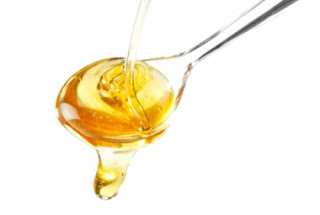Recently I was in conversation with a beekeeper (a semi-rare occurrence) and we, naturally, touched on the subject of organic honey. When I asked him if there really existed a honey that was truly organic, he hesitated and then admitted that organic, even certified organic, when it comes to honey is somewhat of an approximation–as 100 percent organic honey would have to come from 100 percent organic bees. The problem with this claim is that honeybees have a foraging range of several miles (often outside of the organic zone), exposing them to pesticides, fertilizers and pollutants on their way back to the hive.
So while beekeepers may be ultra-judicious and proactive when it comes to maintaining a high-standard product, their worker bees often unwittingly lessen the purity and integrity of the honey.Now whether a honey is or isn’t organic is almost the least of our worries, as there are few federal standards for honey, no government certification and no consequences for making false claims about honey. As imagined, this makes for a market place that is rife with all kinds of substandard honey, or worse, honey that is not really even honey. Often times, to cut costs and “add value” to the product, some unscrupulous producers will dilute their honey with water, various sweeteners and syrups, and boil the honey down to get rid of any off-flavors or chemical residue.
Even though the United States has a relatively booming domestic honey business, it still imports the vast majority of its commercially sold honey, most of which comes from China. While Chinese imports have been getting a bad rap of recent, in the case of honey it is seemingly much deserved. China produces more honey than anywhere else in the world, about 300,000 metric tons (660 million pounds) a year or about 25 percent of the global total. But stocks are tainted with a potentially dangerous antibiotic and cheaper honeys are increasingly getting passed off as more expensive varieties. The Associated Press recently reported on Chinese businessman Yan Yongxiang, who apparently sought to avoid U.S. levies on imports of cheap Chinese honey by shipping Chinese honey to the Philippines, where it was relabeled and sent on to the United States. And just last month, the FDA seized 64 drums of tainted honey from a Philadelphia distribution center. The contraband honey was imported from China, and contained the potent anti-biotic “Chloramphenicol” which could lead to serious illness or death. Food safety specialists say that the anti-biotic was likely used to treat diseased hives – which is not legal in the US.
Unless you buy honey directly from the manufacturer (e.g. from a farmer’s market or a farm store) where you are able to speak directly to the producers (or should I say cultivators) of the honey, then you are often relying on the truthfulness of the label, and as we know, labels are not always that candid.
The lesson here is that honey is somewhat of a frontier product, not quite living by the rules and imposed ethics of most other processed products. Until legislation is developed to control imports and define what exactly “honey” is, we consumers are best off buying as local as possible, and look for labels that read “raw honey” or labels with some sort of reputable certification – if it exists.
